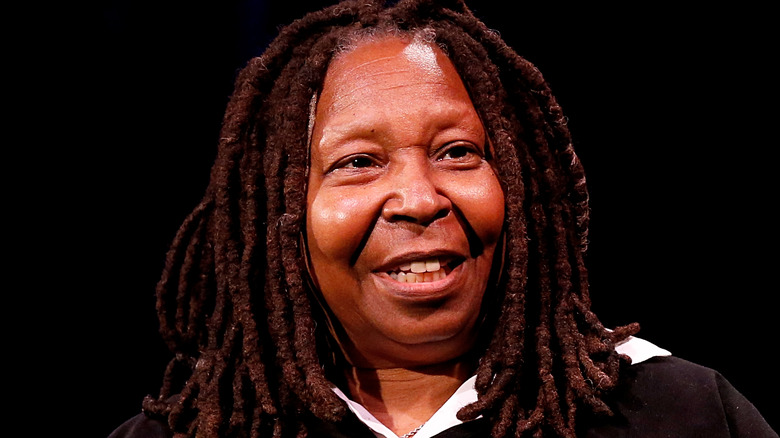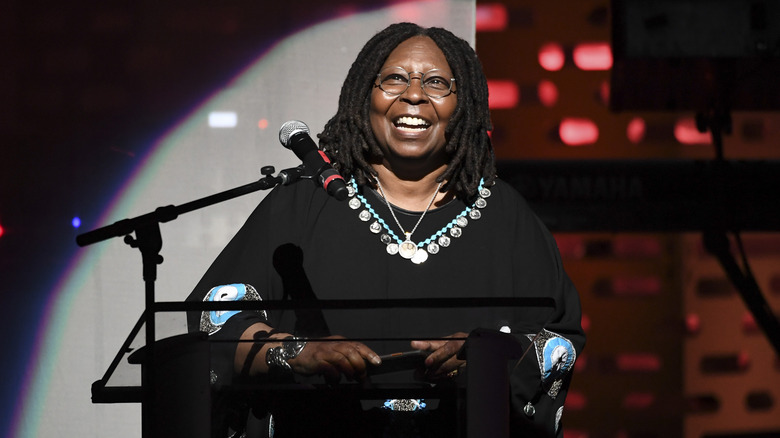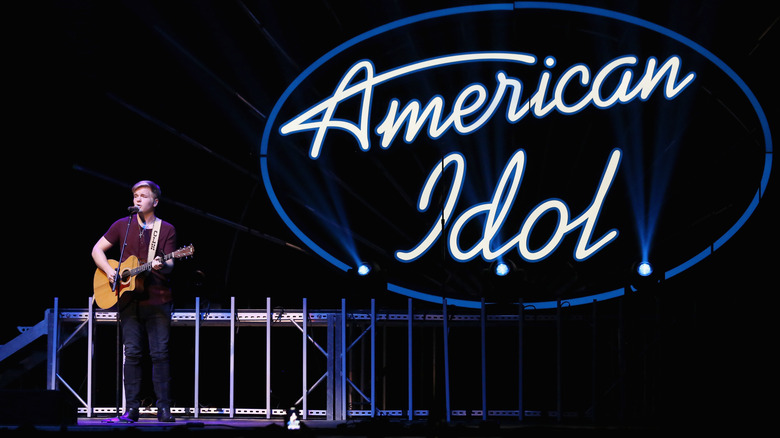The One TV Show Whoopi Goldberg Believes Caused The End Of Society
"American Idol" first premiered in 2002 on Fox. The show was a success and ran through 2016, before leaving our screens and returning in 2018. In its early days, it was a show everybody seemed to be watching. At its peak in 2003, 38 million viewers would tune in to watch hopeful singers attempt to wow the judges, as well as help the voters determine the singers' fate on the show.
While the show had a seemingly wholesome premise, it also had its negative attributes. While critics and viewers applauded singers like Kelly Clarkson, Carrie Underwood, and Jordin Sparks — all of whom won a season and were catapulted into fame because of it — there were plenty who got less than ideal feedback, some so harsh it was simply mean and distasteful. For example, when British judge, Simon Cowell, commented on contestant Mandisa Hundley's weight, or when the judges claimed to know if a contestant would be a star, and offered the backhanded compliment of being "too Broadway" (essentially meaning they likely won't make it far on the show or in their music career unless it was in musical theater).
Another downside is that some winners didn't get the success they expected. This kind of judgment is off-putting to EGOT winner, Whoopi Goldberg, who says she saw it trickle from the judges to American society at large.
Doing more damage than good
Whoopi Goldberg believes that "American Idol" caused more damage to society than good, arguing that it allowed open, harsh judgment of others and normalized its place in society. "Once we gave people the ability to judge other people, I think we ran amok with it, and it's gone out of control," Goldberg said on an episode of the talk show, "The View" (via The Hollywood Reporter). "They invited the public to decide who that person was, and I feel once we did that, it began us in a cycle which we have not [escaped]."
A prime example of this is when, during season three, a "Vote for the Worst" GeoCities web page was created online. The premise essentially was to send the singers whose performance created secondhand embarrassment onto the next level to provide a laugh for the show's viewers. "I think that we, as a society, love to watch stuff to judge folks. I've always thought that the beginning of the downfall of society was with ['American Idol']" Goldberg said.
A transformation
"American Idol" was a pop culture staple in its early days and has become a legend in TV — at least in its early seasons. It shaped the way society allowed consumers of media to have a louder voice by allowing fans to participate by judging the contestants along with the show's set judges. This kind of at-large judgment paved the way for consumers to decide on what pop culture is and who is at the forefront.
As for the more recent seasons of "American Idol," the impact is significantly less, along with its viewership. Critiques of the show have also shifted dramatically. Once called out for rude and unkind criticism from judges, namely Simon Cowell, the feedback now is that the judges are too lenient and rarely offer criticism the fans deem appropriate. While this change is significant, it doesn't change the show's earlier impact on society and pop culture.
Goldberg recognizes the changes in the show, and one of her co-hosts even suggested that she liked it now. "When I was watching it, ABC didn't have it. They have it now, it's a different show, it's a very different show," Goldberg said on a May 2023 episode of "The View" (via People). " The judges are different with the people who are coming."


